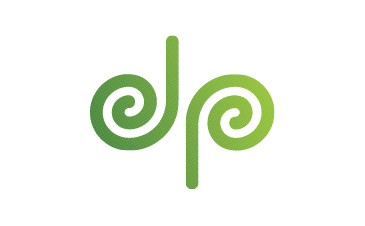From recent experiences and shopping in various natural food stores, I see an opportunity for specialty retailers if they make sales/selling training more a priority than marketing, category management, product knowledge seminars, social media networking, buying and merchandising. After all, we are in the business to sell products.
Yet, rarely do stores have a formal sales training program. Over the next few issues of CNHR, I will focus on sales training tips.
I would like to start this focus with an article I wrote for CNHR in 1998: “It’s Ok to be a Salesperson.” Looking back at that article, I see that what I wrote back then about selling still very much applies in today’s retail environment. My hope is that you can use some of these true and tried sales tips in your own store today. (Look for more tips at www.deaneparkes.com.)
For many of us, there is an uneasy feeling associated with thinking of ourselves as salespeople. But please… get out of the closet and accept this fact: that is what you are.
Though it is nice to educate, and be friendly and caring, if you are not selling enough items, you will be running a non-profit organization. Sales is a profession. So like any profession, it requires attention, enthusiasm, training, study, interest, people skills, good manners, self-esteem, clear goals and listening skills.
Reading an article about sales is not going to make you a salesperson any more than reading a book on water will quench your thirst. However I hope it helps you understand that in a business, you – as well as everyone in it – is a sales person.
- The Golden Rule of Sales
‘Never sell anyone anything you would not buy if you were in their shoes’.
- Advice: – “Do you drink coffee”?
The number one advantage a specialty retailer has over conventional is the ability to interact with consumers and give advice. Most think product knowledge is the most important factor in selling natural products. I believe this is false. Give me a person with passion and the ability to communicate simple consistent messages over a person with product knowledge anytime.
For example, when a customer is about to buy a vitamin, ask “Do you drink coffee?” It’s simple and not too invasive. Most people drink coffee and if not, someone they know does. They are curious and wonder, “Why did you ask?” You let them know: “Coffee neutralizes the effect of most vitamins, especially the B’s and C’s. So if you want to get the best benefit, take your vitamins half an hour to an hour away from drinking coffee.” That’s it! Say no more! No long winded dissertation on biochemical breakdown in the gut is required: just don’t mix coffee with supplements.
So, what happens?
Generally, you will get a, “Thank you, I never knew that.” You will be seen as giving great advice. Often times, customers have bought supplements at stores that never told them this, so you suddenly make gains on the scale of credibility while the competition’s credibility takes a hit. Make sure to write everything out clearly for the customer – when to take, how many a day, etc. Trust me, they will not hear this at Costco. Have simple ‘sales’ tips pre-written for all sales staff. (Thanks goes to Earl Mindell and his priceless Vitamin Bible for this information).
- Cost of supplements per day
Getting people to buy into a good supplement program is often a challenge because of the price to buy. It may seem expensive, especially to someone new to using supplements.
To help take the sting out of the price, it is best first to start by having a good understanding of what a basic supplement program costs on a daily basis.
For instance, let’s say someone wants to buy a program for menopause and you estimate in your head the total of all the products is around $150 for a three-month supply.
To ease the pain of paying $150, I would suggest you tell them, “It costs around $1.50 per day.” Take the sting out even more by adding, “It’s about the same cost as your daily coffee.” So now, you have sold them on a mere $1.50 per day, instead of $150.
Often, we under-sell people who need a little more nutritional support because we are afraid of the initial shock of a $150 price, but most people will think $1.50 is not so bad and they will receive better results with a complete program.
When I worked in retail, we had figured out the estimated cost per day for each of the key nutritional programs, so we would give the customer the cost-per-day as part of the ‘sales’ conversation.
Never oversell anyone for the sake of a sale. Happy Sales to You! •
Related Articles

I’m TIRED of PLASTIC on my ORGANIC PRODUCE!
Recently, I was at a conventional grocer and noticed there were no stickers on the conventional pesticide-laden fruits and veggies. Yet, the organic produce had two stickers that said “organic.” At my local health store, they also have “organic” and “local” stickers on the fruits and veggies. Personally, I think there has to be a […]
Article

Culture
From my library of great books ………… This article is going to take a different slant. I read 30 minutes every day from various business books. Usually I am reading 3 or 4 at the same time. This past month I am reading “Power Retail” by Lawrence Stevenson. I suggest strongly you take the time […]
Article

Three do’s that DO work. Education, Instore Promotion, Outside Promotion.
When looking to increase your business there are 3 key areas that given proper attention will result in improved service and increased sales. I suggest you review each of these with your suppliers the next time you have an appointment to see how they can assist you, also, I urge you as owners and management […]
